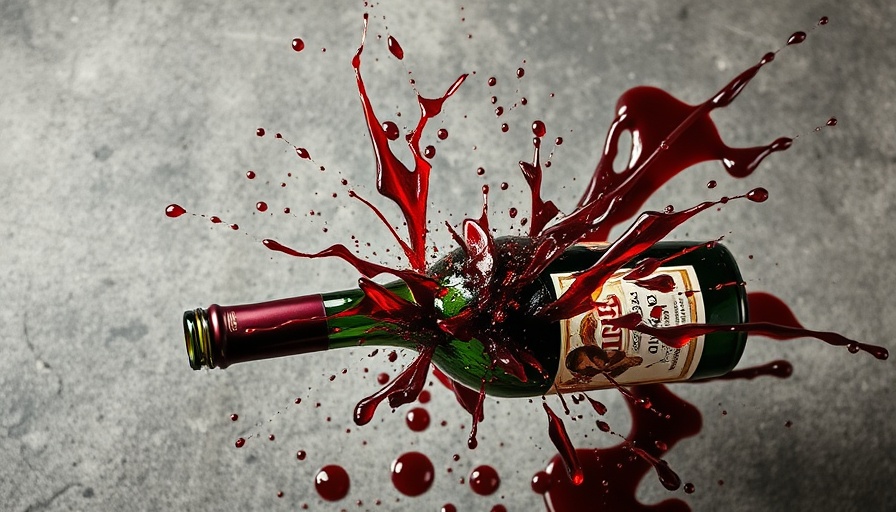
Ripples of Tariffs: How Trump’s Proposed Wine Tariffs Could Shake Industries
In a move that has sent shockwaves across both sides of the Atlantic, President Trump's recent threat of imposing a 200% tariff on wine and spirits imported from Europe is raising alarms in the American wine industry. As reports circulate on the impact of escalating trade tensions, U.S. wine professionals are left grappling with uncertainty that could deeply affect their businesses.
Understanding the Context of This Tariff Threat
The complicated history of trade relations between the U.S. and the E.U. has reached a fever pitch recently. After the U.S. imposed a 25% tariff on metal imports, the E.U. retaliated with a 50% tariff on goods like American bourbon. As tensions mount, Trump’s insistence on a staggering 200% tariff presents a unique challenge for an industry that's already been vulnerable during the pandemic.
The Reaction from the Wine Trade and Industry Leaders
Voices from the U.S. Wine Trade Alliance (USWTA) are vocal against the proposed tariffs. Ben Aneff, a key figure within the alliance, has urged members to halt shipments of EU products. This precaution speaks volumes about the risks facing American wine businesses. Aneff highlighted that letters urging opposition to tariffs have flooded commerce offices, but the absence of a formal response raises questions about the government's attentiveness to grassroots concerns.
Consequences for Workers in the Wine Sector
When discussing the potential ramifications, Don Opici, CEO of Opici Wines & Spirits, articulated the human cost of such policy decisions. His cautionary perspective reveals that while immediate layoffs may not be on the horizon, there is a real possibility of devastating ripple effects as businesses struggle to survive high tariffs. Without an alternative strategy or a viable market to import from, employees and families could find themselves in crisis.
Socioeconomic Impacts: A Community Concern
Beyond the impact on imported wines, this tariff proposition could signal a domino effect that trickles down to community businesses, including local retailers and restaurants that rely on European wines for their offerings. The combination of fewer choices and higher prices could alter the landscape of dining and social gatherings in cities like Philadelphia, where wine culture thrives.
What’s Next for American Wine?
The industry waits with bated breath as negotiations may unfold. The temporary pause on tariffs presents a slim opportunity for diplomacy, but the unresolved matter looms large. Wine enthusiasts and industry stakeholders are urged to stay informed and vocal about their stance against tariffs that threaten the vitality of their industry. This is not just about wine; it’s about preserving the lifestyle and culture that comes with it.
As passionate supporters of local wine culture in Philadelphia, it is essential for consumers to understand how political decisions take root in our everyday experiences. We encourage you to reach out to your local representatives, share your thoughts, and advocate for a flourishing wine industry that celebrates both local and European traditions.
 Add Row
Add Row  Add
Add 




Write A Comment